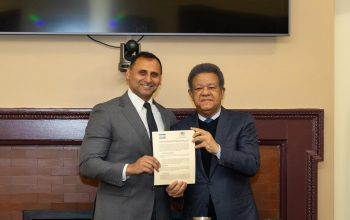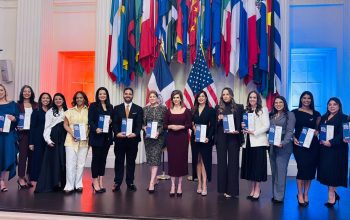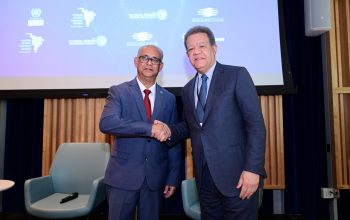news
Presentation on Computer Usage and Academic Performance Amongst Youth
March 6, 2008
Amongst researchers, there are still more questions than answers concerning the amount of time school age children spend using computers, both in more developed and lesser developed countries. Francesc Pedró, an analyst from the Organisation for Economic Co-Operation and Development (OECD) in the inaugural presentation of Virtual Educa Caribe 2008, put these questions on the table during his presentation,“Education, Equity and Competiveness in Ibero
America, ” which took place, Thursday, March 6th during the 2008 Conference of Virtual Educa Caribe at FUNGLODE Headquarters.
America, ” which took place, Thursday, March 6th during the 2008 Conference of Virtual Educa Caribe at FUNGLODE Headquarters.
Pedró cited statistics accumulated by the OECD to illustrate that in countries where access to technology is greater, young people spend more time using computers in their homes than they do at school and centers of academic learning.
However, in Latin America and the developing world, the classroom continues to be the place where students have greatest access to computer usage. The international expert affirmed that for many countries, like those affiliated with the OECD, the problem now isn’t teaching children how to use the computer, but rather the degree to which they can use this tool to maximize their academic success.
According to the
OECD Analyst, studies indicate that students able to access the internet in their homes are more likely to receive better grades in school. While indicating that the number of people with access to technology via computers has quadrupled in Latin America over the last six years, he warned that this growth is much less than that of more developed countries.
OECD Analyst, studies indicate that students able to access the internet in their homes are more likely to receive better grades in school. While indicating that the number of people with access to technology via computers has quadrupled in Latin America over the last six years, he warned that this growth is much less than that of more developed countries.
This presentation formed part of the 2008 Conference of Virtual Educa Caribe,
an initiative of Global Foundation for Democracy and Development (GFDD) and Fundación Global Democracia y Desarrollo (FUNGLODE), launched in Santo Domingo during the Inter-American Forum on New Technologies that took place April, 2007.
an initiative of Global Foundation for Democracy and Development (GFDD) and Fundación Global Democracia y Desarrollo (FUNGLODE), launched in Santo Domingo during the Inter-American Forum on New Technologies that took place April, 2007.
The forum seeks to promote discussion and foster the use of new technologies in education, capacity building and training. In this sense, Virtual Educa Caribe seeks to contribute to elevating
labor efficiency and ultimately economic growth and competitiveness in the country.
labor efficiency and ultimately economic growth and competitiveness in the country.







